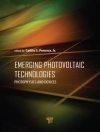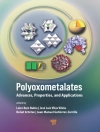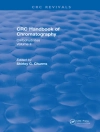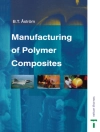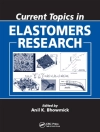Microbiological Identification using MALDI-TOF and Tandem Mass Spectrometry
Detailed resource presenting the capabilities of MALDI mass spectrometry (MS) to industrially and environmentally significant areas in the biosciences
Microbiological Identification using MALDI-TOF and Tandem Mass Spectrometry fulfills a need to bring the key analytical technique of MALDI mass spectrometric analysis into routine practice by specialists and non-specialists, and technicians. It informs and educates established researchers on the development of techniques as applied to industrially significant areas within the biosciences. Throughout the text, the reader is presented with recognized and emerging techniques of this powerful and continually advancing field of analytical science to key areas of importance.
While many scientific papers are reporting new applications of MS-based analysis in specific foci, this book is unique in that it draws together an incredibly diverse range of applications that are pushing the boundaries of MS across the broad field of biosciences.
Contributed to by recognized experts in the field of MALDI MS who have been key players in promoting the advancement and dissemination of authoritative information in this field, Microbiological Identification using MALDI-TOF and Tandem Mass Spectrometry covers sample topics such as:
* Oil microbiology, marine and freshwater ecosystems, agricultural and food microbiology, and industrial waste microbiology
* Bioremediation and landfill sites microbiology, microbiology of inhospitable sites (e.g. Arctic and Antarctic, and alkaline and acidic sites, and hot temperatures)
* Veterinary, poultry and animals, viral applications of MS, and antibiotic resistance using tandem MS methods
* Recent developments which are set to transform the use of MS from its success in clinical microbiology to a wide range of commercial and environmental uses
Bridging the gap between measurement and key applications, this text is an ideal resource for industrial and environmental analytical scientists, including technologists in the food industry, pharmaceuticals, and agriculture, as well as biomedical scientists, researchers, clinicians and academics and scientists in bio-resource centers.
Spis treści
Preface
Chapter 1 Progress in the Microbiological Applications of Mass Spectrometry; From Electron Impact to Soft Ionisation Techniques, MALDI-TOF MS and Beyond
Chapter 2 Machine Learning in analysis of complex flora using mass spectrometry
Chapter 3 Introduction, New Mass Spectrometry Platforms and New Applications
Chapter 4 Liquid Atmospheric Pressure (LAP) – MALDI MS(/MS) Biomolecular Profiling for Large-Scale Detection of Animal Disease and Food Adulteration and Bacterial Identification
Chapter 5 Development of a MALDI-To F mass spectrometry test for Viruses
Chapter 6 A MALDI-TOF MS proteotyping approach for Environmental, Agricultural
and Food Microbiology
Chapter 7 Diversity, Transmission and Selective Pressure on the Proteome of Pseudomonas aeruginosa
Chapter 8 Characterization of Biodegradable Polymers by MALDI-TOF MS
Chapter 9 Phytoconstituents and Antimicrobiological Activity
Chapter 10 Application of MALDI-TOF MS in bioremediation and environmental research
Chapter 11 From Genomics to MALDI-TOF MS: Diagnostic Identification and Typing of Bacteria in Veterinary Clinical Laboratories.
Chapter 12 MALDI-TOF MS Analysis for Identification of Veterinary Pathogens from Companion Animals and Livestock Species
Chapter 13 MALDI-TOF MS from microbiology to drug discovery
Chapter 14 Rapid Pathogen Identification in a Routine Food Laboratory using High Throughput MALDI-TOF Mass Spectrometry
Chapter 15 Rapid Pathogen Identification in a Routine Food Laboratory using High Throughput MALDI-TOF Mass Spectrometry
Chapter 16 Use of MALDI-TOF MS in Water Testing Laboratories
Chapter 17 A new MALDI-TOF database based on MS profiles of isolates in Icelandic seawaters for rapid identification of marine strains
Chapter 18 MALDI-TOF MS Implementation Strategy for a Pharma Company based upon a Network Microbial Identification Perspective
Chapter 19 MALDI-TOF MS – Microbial Identification as Part of a Contamination Control Strategy for Regulated Industries
Index
O autorze
Haroun N. Shah led the establishment of unique laboratory capabilities, transforming Public Health Laboratory Services’ identification of new and emerging threats through mass spectrometry combined with molecular technologies between 1999-2015. After his retirement, he continued to provide expert advice and training to industry and academia to advance innovations and embed new applications of proteomics across biosciences.
Saheer E. Gharbia is the Deputy Director of Gastrointestinal Infection and Food Safety for the UK Health Security Agency and has led the COVID-19 Genomics Programme to support the response to the COVID-19 pandemic. She continues to develop tools for the analysis and interpretation of complex biological and pathogenic traits and works across the One Health Scientific Community to embed common surveillance mechanisms to detect and track emerging threats.
Ajit J. Shah is a Professor in Bioanalytical Science in the Department of Natural Science, Middlesex University, UK.
Erika Y. Tranfield is Scientific Affairs Manager Microbiology at Bruker.
K. Clive Thompson is Chief Scientist at ALS, Life Sciences, UK, an analytical testing organisation in the UK and Ireland.


